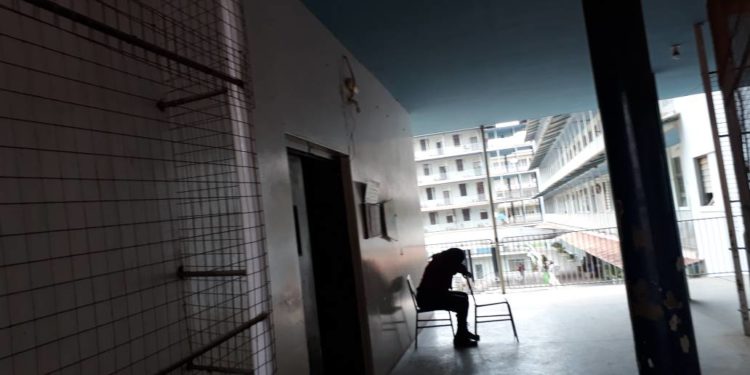With no end in sight yet, healthnews.africa visited UCH Ibadan to assess the impact of the JOHESU strike…
The University College Hospital Ibadan is both a national heritage and a pivotal milestone in healthcare in Nigeria. It is also the training ground for some of Nigeria’s foremost medical professionals including the current Nigeria’s health minister.
Prof. Isaac Adewole who studied in the institution, also held various leadership positions including leading the institution’s chapter of the Nigerian Association of Resident Doctors (NARD) and serving as the provost of the College of Medicine of the University of Ibadan, a position he held before becoming the Vice Chancellor of the country’s premier university, the University of Ibadan, from where he became Nigeria’s health minister.

The UCH Ibadan is therefore an important healthcare institution where the pulse of the ongoing strike action embarked upon by the members of the Joint Health Sector Unions (JOHESU) could be best felt.
When healthnews.africa visited the institution on a Tuesday afternoon, various parts of the hospital were a shadow of their busy days as wards, offices, hallways and other prime locations in the hospital were deserted.
None of the lifts was working while the x-ray department which also housed the department of radiology of the hospital and the University of Ibadan, was dark and locked.
Walking along the Otunba Tunwase Children Emergency Ward also revealed that the strike action affected service delivery at the pediatrics ward that is a beehive of activities when there is no strike.
Directly below the children’s ward is the UCH Public-Private partnership lab which among other reasons, was reportedly established to reduce the impact of health workers’ strike actions. However, the facility was locked when healthnews.africa visited the hospital.
There were also strong indications that surgical procedures may not be going on during the strike action since the Surgery Department of the hospital was locked.
Some units were however opened, notably the Intensive Care Unit, while some relatives of individuals seeking medical attention were found roaming the wards and asking questions.
At the Children Clinic, while the main door was accessible, some doctors were available while the nursing stations were ‘manned’ by medical students. The consulting rooms were dark and the security officer assigned to the clinic was found sleeping on one of the benches opposite the pay point that was locked.
Most of the wards visited were empty a development which one doctors described as unfortunate and unavoidable since the nurses are in charge of patient admissions in the wards.
But in spite of the vast level of compliance with the strike action in the hospital, the Accident and Emergency Unit was still attending to some patients. One of the doctors there told our correspondent that they are striving to ensure that accident victims are stabilised before they are referred to private hospitals for admission and monitoring.
At the hospital’s outpatient department, some doctors were available although only a few non medical persons were around most of whom were lounging even as a couple of medical students were reading in the clinic or accessing the internet.
Several noticeboards in the hospital premises contained information regarding the strike and healthnews.africa was told that the workers aren’t just on strike, they also have those going around to monitor operations and to prevent sabotage.
No end in sight
The strike action entered its third week on Wednesday and there is no indication that it is ending anytime soon as government and JOHESU are yet to reach any concrete decision even though the health minister continues to promise that the strike will end soon.
In a recent interview, he described as untrue the allegation by JOHESU that his ministry is favoring doctors over other health professionals.
“That is not true, very untrue,” he told ThisDay.
He affirmed that the strike would end soon and the ministry is addressing it comprehensively.
“There are quite a number of funny issues, and we want to make sure that we handle them comprehensively. We don’t want to end the strike only to face another one so we are looking at it comprehensively and in totality,” he said.
He revealed that the Secretary to the Government of the Federation is already involved and all the issues are being reviewed.
“We are doing the costing, looking for money here there, calculating the cost implication to implement the salary adjustment, what are the expected fall-outs, what are the issues, and all that. We are addressing these in totality.”